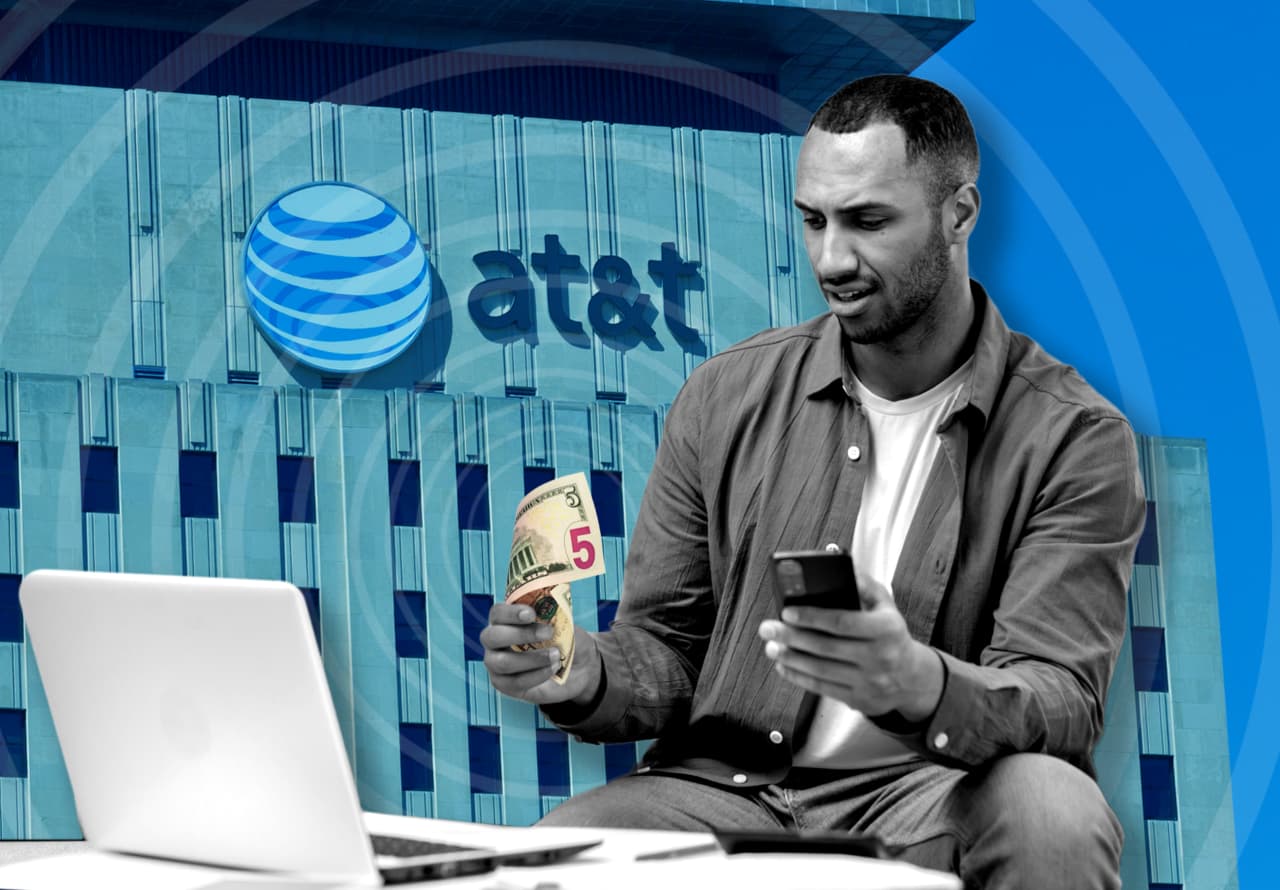Some AT&T customers are not satisfied with the $5 credit the company is offering for its massive service disruption last week, saying $5 is no longer enough to buy almost anything these days — and is not adequate compensation for the inconvenience caused by the outage.
Consumers expressed disappointment with AT&T’s credit on X, saying, for instance, that $5 could only “buy 5/6ths of a box of Thin Mints” and joking that they would get “a cup of ice or a 8 oz carton of milk.” Some said the company wasn’t doing enough for its longtime customers.
“The fact they’re giving us a $5 credit is a joke!” one X user wrote. “My phone wasn’t working for 6 hours & you think that’s equivalent to $5???”
Jeremy Elanaya, a talent manager, was in Atlanta to catch a transfer flight to Poland for a work trip when his service went out. By the time he and his client arrived in Poland roughly 10 hours later, service still hadn’t been restored.
“It just went out at the worst time imaginable,” said Elanaya, who has been an AT&T customer for seven years. “When you throw $5 at someone’s face, it’s like you’re really telling me you don’t give a s— if it does or doesn’t work. Also, the way I see it, you’re a company with a multi-billion-dollar valuation; you must believe that your service is worth more as well.”
Last Thursday, there were 1.5 million reports of customers, like Elanaya, who were unable to make calls and texts or access internet and emergency services for about 12 hours, according to the service-tracking website Downdetector.com. The outage was “due to the application and execution of an incorrect process used while working to expand our network,” according to a letter AT&T sent to employees.
The company announced that to compensate for the disruption, it would credit impacted customers $5 each. It said that amount was “the average cost of a full day of service,” and that the credit would appear in one to two business cycles.
AT&T’s estimate of the cost of a full day of service isn’t too far off. The average monthly wireless payment is now $157, according to J.D. Power, which works out to about $5.20 a day. Costs have gone up: In 2019, the average payment was $146.
“‘Unfortunately, the [Federal Communications Commission] doesn’t provide any kind of recourse in this kind of situation. … I would argue that if that’s something that concerns people, then they should certainly take that up with the FCC.’”
But following a period of record inflation, $5 is not what it used to be. The average cost of a mocha coffee drink is now $5.40, as MarketWatch has reported. In some states, $5 won’t even cover the cost of a Big Mac anymore. Subway’s once-iconic $5 footlong sandwich is now closer to $10. Five dollars might get you a bag of chips, but probably not a very big bag, according to grocery-price data from Datasembly, which shows a 12.5-ounce bag of Lay’s potato chips now costs $5.23 on average.
While AT&T customers may be disappointed by the $5 credit, in some ways they’re lucky to have it, because there are no rules requiring refunds for this kind of interruption.
“Unfortunately, the [Federal Communications Commission] doesn’t provide any kind of recourse in this kind of situation, that if your cellphone is out for one day or half a day or a week, that the phone company must reimburse you X amount of dollars or X percentage of your bill,” said Teresa Murray, the consumer-watchdog director at U.S. Public Interest Research Group. “I would argue that if that’s something that concerns people, then they should certainly take that up with the FCC.”
Murray called the $5 credit “kind of insulting.” “I don’t care if it’s $5, $10, $20. I’m sure that would not be appropriate compensation for most people in exchange for the disruption that it caused in their day,” she said. “Unfortunately, there’s just not anything legally that would contradict that.”
She added that beyond this isolated AT&T incident, wireless carriers shortchange their customers in other ways, too. Many charge users roughly $5 per month for spam-call filters, which “they should be doing for free, and doing it better than they are right now,” she said.
Companies also continue to add unauthorized charges on bills, a move known as “phone-bill cramming,” which may include ambiguous expenses like “service fee,” “service charge,” “other fees,” “voicemail,” “mail server,” “calling plan” and “membership,” for example.
In response to a request for comment about the $5 credit, an AT&T spokesperson quoted AT&T CEO John Stankey’s letter to employees.
“[O]utages sometimes have outsized impacts on some subscribers that may be greater than the face value of the credit,” Stankey wrote, but added that “this approach is fully manageable while achieving the 2024 business objectives we have set for ourselves and our stated financial guidance.”
How do you feel about your cellphone bill? We want to hear from readers who have stories to share about the effects of increasing costs and a changing economy. If you’d like to share your experience, write to readerstories@marketwatch.com. Please include your name and the best way to reach you. A reporter may be in touch.

